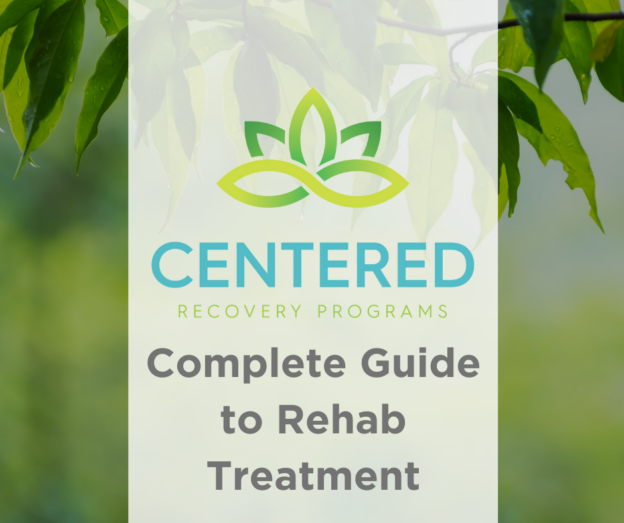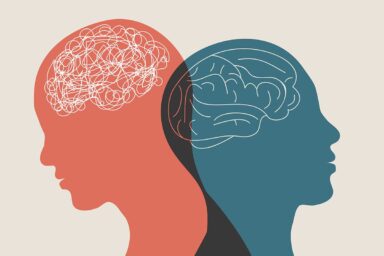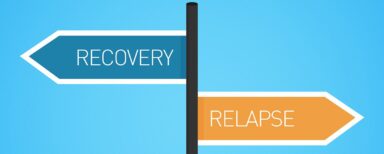Rehab Roadmap: The Complete Guide to Rehab Treatment
Choosing to start your journey towards rehabilitation is both courageous and transformative! Whether you’re recovering from substance use or seeking to improve your mental health, the path to recovery can seem overwhelming and confusing at times. However, with the proper guidance and support, the journey becomes one of empowerment and self-reflection. In this complete guide to rehab treatment, we’ll navigate through the treatment options for rehabilitation by offering insights, resources, and practical tips to help you! Centered Recovery is here to provide you with the roadmap to success, whether you’re just beginning your rehab treatment search or seeking to deepen your understanding.
Understanding Addiction and the Role of Rehab
Addiction is a complex issue that affects countless people from all walks of life. Often, substance abuse is recognized through compulsive behavior with destructive consequences, rewiring of natural brain chemistry, and a cycle of craving and relapse. Understanding addiction as a chronic disease lowers the stigma of receiving help and highlights the importance of comprehensive rehab treatment.
As a whole, rehab treatment offers a structured environment where people can confront the root causes of their addiction while learning coping strategies for a substance-free lifestyle. Rehab treatment programs vary from short-term residential to intensive outpatient, all aimed at empowering individuals to regain control of their futures. Through a blend of therapies, counseling, education, and peer support, rehab treatment addresses the physical, psychological, and social aspects of addiction.
Rehab treatment provides a supportive community where people can connect with others facing similar challenges. Often, this fosters a sense of belonging and encouragement crucial for maintaining long-term sobriety. By embracing the role of rehab treatment, the journey of self-discovery and transformation can be guided and supported. Recovery is possible for everyone determined to reclaim their lives from the hold of addiction and can lean on rehab treatment options for lasting recovery!
Types of Rehab Treatment
Rehab treatment offers a range of options designed to support individuals in overcoming substance abuse at all levels of support. From detoxification to outpatient programs, there are diverse recovery paths tailored to meet each individual’s unique needs. Understanding these options is crucial in deciding the proper rehab treatment for you!
Detoxification
Detoxification, or detox, is often the first step in rehab treatment. It involves the process of clearing drugs or alcohol from the body and managing withdrawal symptoms. Detoxification can be done on an inpatient or outpatient basis, depending on the severity of the addiction and the individual’s medical needs.
Residential/Inpatient
Residential or inpatient treatment programs provide 24-hour care in a structured environment. Clients live at the treatment facility for the program, typically lasting from 28 days to several months. Inpatient treatment offers intensive therapy, medical supervision, and peer support to help individuals overcome addiction and develop coping skills for long-term recovery.
Partial Hospitalization (PHP)
Partial hospitalization programs provide structured treatment during the day, but patients return home or to a sober living environment in the evenings. PHPs typically offer a combination of therapy, education, and support services. This level of care allows individuals to receive intensive treatment while maintaining some level of independence.
Intensive Outpatient (IOP)
Intensive outpatient programs, like our program at Centered Recovery, offer a step-down level of care for individuals who have completed residential or partial hospitalization treatment. IOPs typically involve several hours of therapy and support services per day, several days a week, allowing individuals to continue working, attending school, or fulfilling other responfsibilities while receiving treatment.
Outpatient (OP)
Outpatient treatment allows individuals to attend therapy and support sessions while living at home or in a sober living environment. This level of care offers flexibility and will enable individuals to continue with work, school, or family commitments while receiving treatment. Outpatient treatment may include individual therapy, group therapy, medication management, and other support services tailored to the individual’s needs at a less intensive level than an IOP.
Holistic Approaches to Rehab Treatment
Holistic approaches to rehab treatment focus on the mind, body, and spirit as a whole in healing from addiction. Addiction affects not only the physical body but also mental, emotional, and spiritual well-being! Holistic approaches to rehab treatment recognize that recovery is a journey that requires addressing the whole person. By incorporating these holistic practices into rehab treatment programs, individuals can enhance their quality of life! Here are some common holistic approaches to rehab treatment that you may not be aware of.
Mindfulness and Meditation
Mindfulness practices and meditation techniques can help individuals develop greater self-awareness, manage cravings, and reduce stress! Mindfulness-based programs like Centered Recovery teach participants to observe their thoughts and emotions without judgment. Hopefully, this helps in being present in the moment and fostering a deeper understanding of the underlying causes of addiction.
Yoga and Movement Therapy
Yoga and movement therapy promotes physical health, flexibility, and strength while addressing emotional issues. These practices can help individuals reconnect with their bodies, release tension and trauma, and cultivate inner peace and harmony.
Nutritional Therapy
Proper nutrition plays a huge role in recovery by supporting physical health and promoting overall well-being! Nutritional therapy focuses on creating balanced meal plans tailored to individual needs, addressing nutritional deficiencies, and teaching healthy eating habits to support long-term sobriety.
Art Therapy
Art therapy provides creative outlets to express emotions, process trauma, and explore issues related to addiction in a non-verbal way. Artistic activities such as painting, drawing, or sculpting can promote self-discovery and enhance self-esteem and self-awareness.
Holistic Therapies
Other holistic therapies like acupuncture, massage therapy, aromatherapy, and equine therapy may be integrated into rehab treatment programs. Generally, these therapies aim to promote relaxation, reduce cravings, and improve overall well-being. It’s all about the treatment options that resonate with you!
Dual-Diagnosis Rehab Treatment
Dual-diagnosis rehab treatment addresses the needs of those struggling with both addiction and mental health disorders such as depression, anxiety, bipolar disorder, or PTSD. By using this integrated approach, professionals recognize that one can exacerbate the other, and rehab treatment can be complex. Dual-diagnosis rehab treatment programs provide care that addresses both conditions simultaneously! Generally, dual-diagnosis treatment utilizes evidence-based therapies such as cognitive-behavioral therapy (CBT), dialectical behavior therapy (DBT), and medication management based on the needs of the individual.
Overall, the goal is to treat the underlying causes of addiction and mental illness while teaching individuals coping skills to manage symptoms in the long term. Ideally, dual-diagnosis rehab treatment offers a holistic approach to recovery, promoting healing and overall well-being!
Medication-Assisted Treatment in Rehab
Medication-assisted treatment, or MAT, is an approach to addiction recovery that combines FDA-approved medications with behavioral therapies. Oftentimes, MAT is particularly effective for individuals struggling with opioid or alcohol addiction. Common medications used in MAT include disulfiram and acamprosate for alcohol addiction, while methadone, buprenorphine, and naltrexone are medications for opioid-related use.
MAT can be an effective tool in addiction treatment by helping individuals manage withdrawal symptoms, reduce cravings, and improve treatment outcomes. When combined with counseling and behavioral therapies, MAT provides a fresh approach to recovery that addresses both the physical and psychological aspects of addiction.
Family Dynamics in Recovery
Understanding how addiction happens within a family dynamic is a major element for effective rehabilitation. Most times, addiction impacts not only the individual seeking rehab treatment but also their loved ones. Family dynamics can contribute to the development and continuation of addictive behaviors because of family history, communication patterns, enabling behaviors, or unresolved conflicts. In rehab treatment, healing as a family is encouraged through ongoing family therapy and education!
Family therapy provides a safe space for open communication, expressing emotions, and rebuilding trust. Additionally, it helps family members understand the role they play in the cycle of addiction. Family therapy can help learn strategies to support loved ones in recovery while addressing their needs. By involving the family in the treatment process, individuals in recovery can receive the necessary support and encouragement to navigate challenges. Maintaining sobriety is a difficult journey, and having family there to build healthy dynamics is conducive to long-term recovery!
Life Skills Training and Relapse Prevention in Rehab Treatment
Rehab treatment programs understand how life skills training and relapse prevention strategies help set people up for success in recovery. In most cases, life skills training focuses on practical skills like communication, problem-solving, stress management, and decision-making. All of these skills are essential for navigating the challenges of everyday life without returning to substance use. By learning and practicing these skills in a safe environment, individuals can enhance their self-confidence and resilience!
Additionally, relapse prevention strategies help individuals identify their personal high-risk situations. Knowing your triggers allows the space to develop coping mechanisms and create a personalized plan to prevent relapse. Through education, counseling, and skill-building exercises, rehab treatment empowers individuals to overcome obstacles and build a fulfilling life in recovery!
Importance of Continuing Support and Aftercare
Aftercare and alumni programs play a significant role in supporting individuals transitioning from rehab treatment back into their everyday lives. As a rule of thumb, most programs provide ongoing support, guidance, and resources to help continue the recovery journey.
Aftercare programs typically include continued therapy, support group meetings, sober living arrangements, vocational assistance, and access to community resources. Alumni programs offer opportunities for individuals to stay connected with peers in rehab treatment who have shared similar experiences. This continued connection can provide a sense of belonging, understanding, and encouragement! Most rehab treatment programs offer some form of alumni or aftercare programming. So, remember to ask these questions in your treatment program search!
Overcoming Stigma Toward Rehab Treatment
Now, we know that reading all this great information about rehab treatment is important, but we need to start talking about these topics, too! Open and honest discussions about seeking help for rehab treatment are essential for reducing stigma. Mainly, the stigma surrounding addiction treatment stems from misconceptions, fear, and judgment, which can prevent individuals from seeking the help they need. We can challenge stereotypes, educate others, and promote understanding and empathy by openly discussing addiction and rehab treatment options!
Centered Recovery hopes that sharing personal stories of recovery can humanize the experience of addiction and inspire hope in others. Addiction is a complex medical condition, not a moral failing! It’s time to shift our attitudes and encourage compassion and support for those seeking treatment. By breaking the silence and confronting stigma head-on, we can create a culture where seeking help for rehab treatment is always seen as a courageous and proactive step toward healing and recovery.
Finding the Right Rehab Treatment for You
When choosing the best treatment program for you, keeping all these different aspects in mind is essential. Your treatment plan should be tailored to your needs and wants for the future, and we are here to help! Centered Recovery Programs, located in the heart of Roswell, Georgia, is a mindfulness-based outpatient drug and alcohol rehab treatment program.
Whether you prefer to attend treatment in person or need virtual Telehealth services, we can help! Centered Recovery has been providing meaningful, quality care to Georgia residents since 2017, and we have the most Google Reviews of any treatment provider in the state–all five stars!
If you have been considering alcohol or substance use addiction rehab treatment options, or you have been struggling with mild mental health disorders such as anxiety, depression, overwhelming stress, or burnout issues, and would like to understand the difference that a mindfulness-based program can make, please give us a call at 800-556-2966 to speak to one of our Admissions Team counselors today!
Written by Jennifer Lopes, BS Psy













